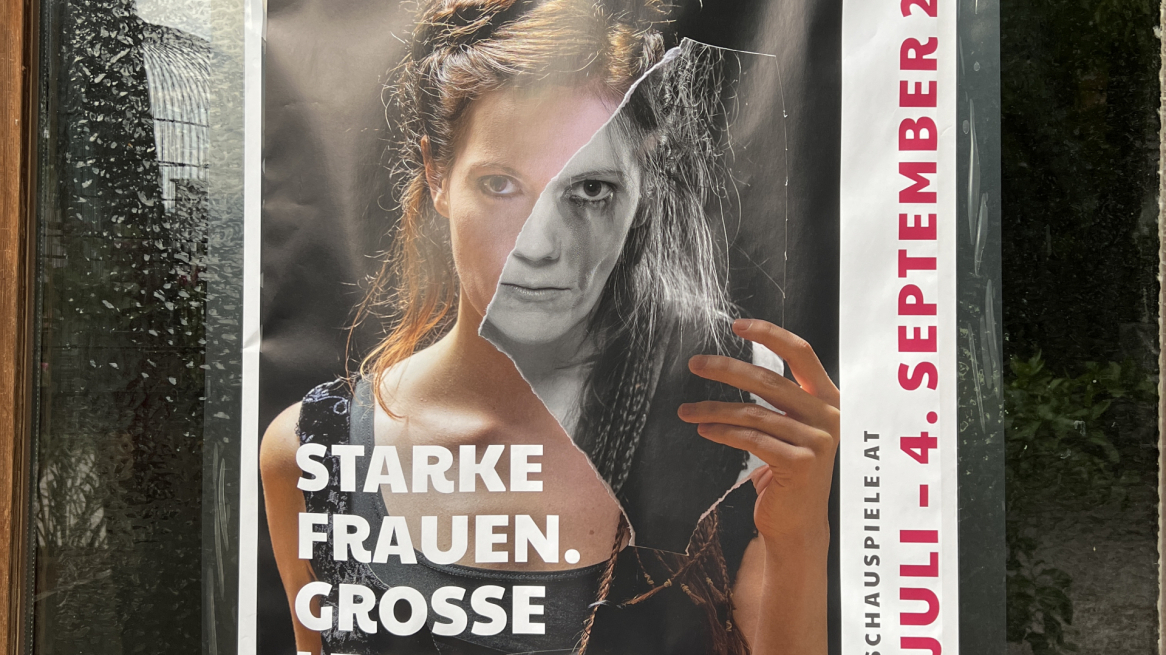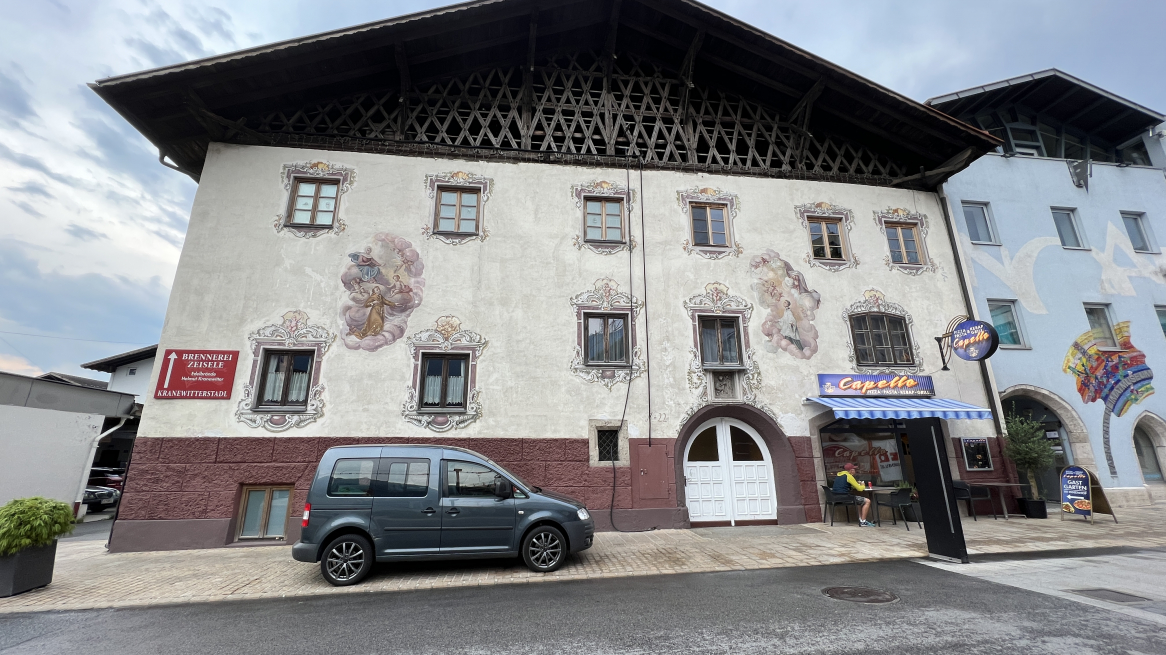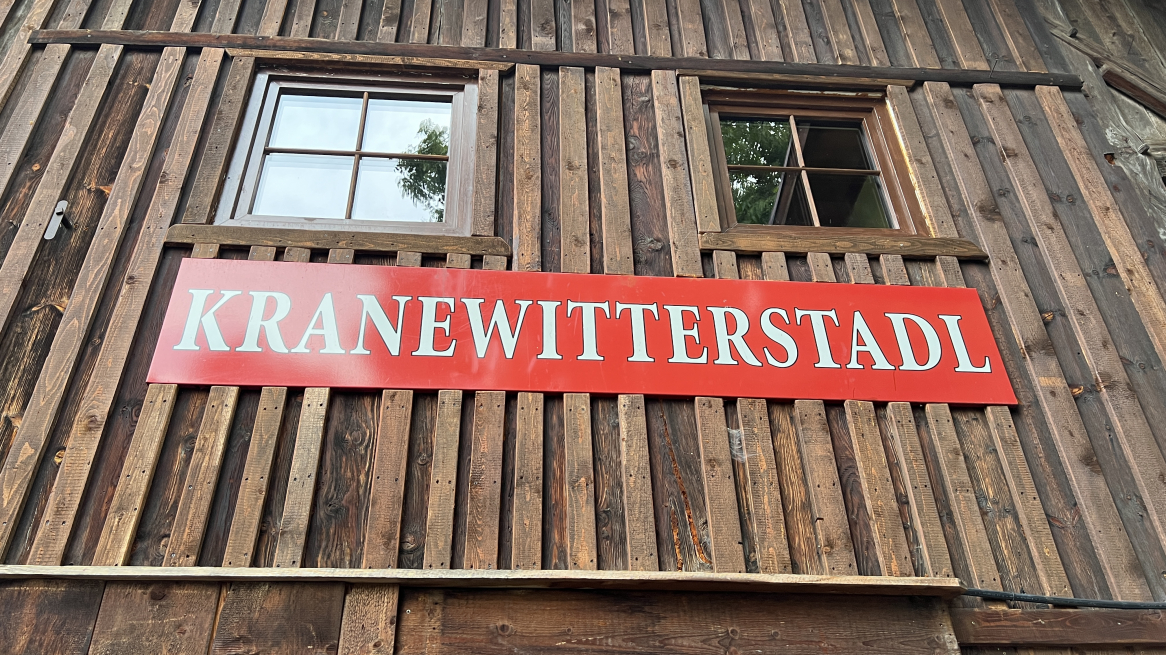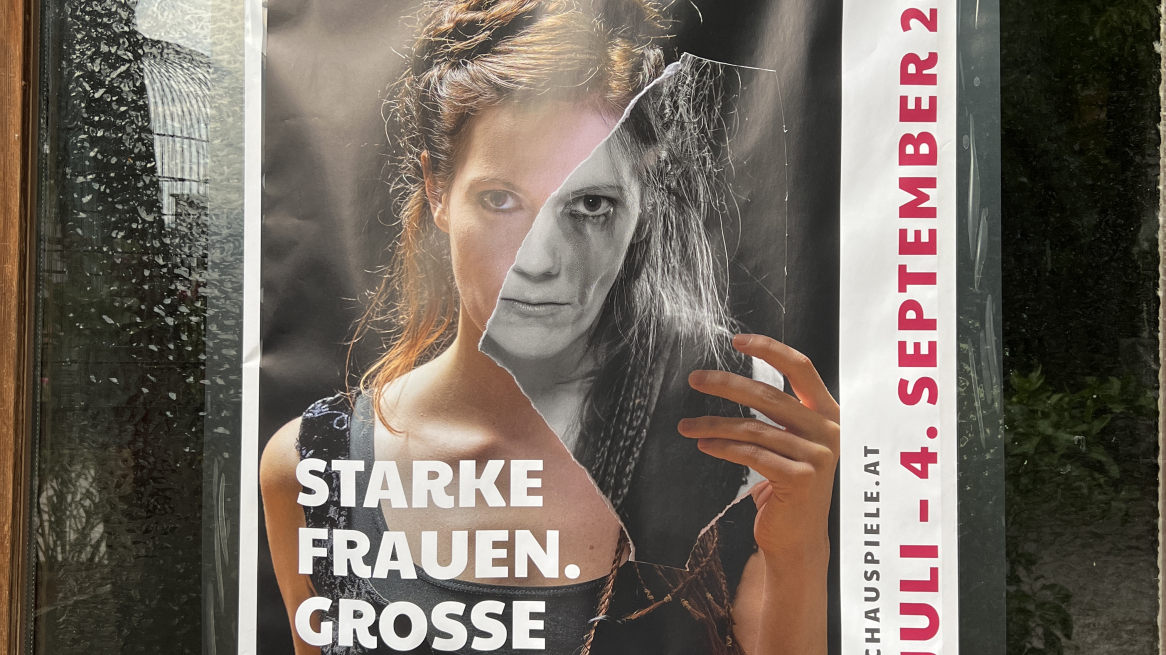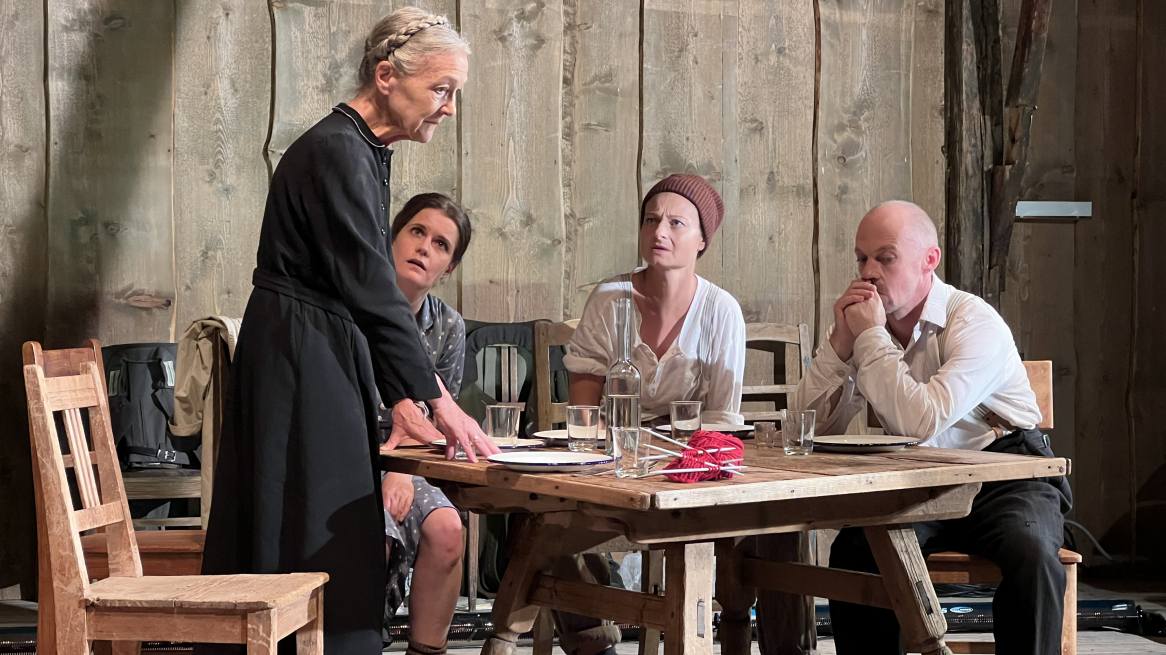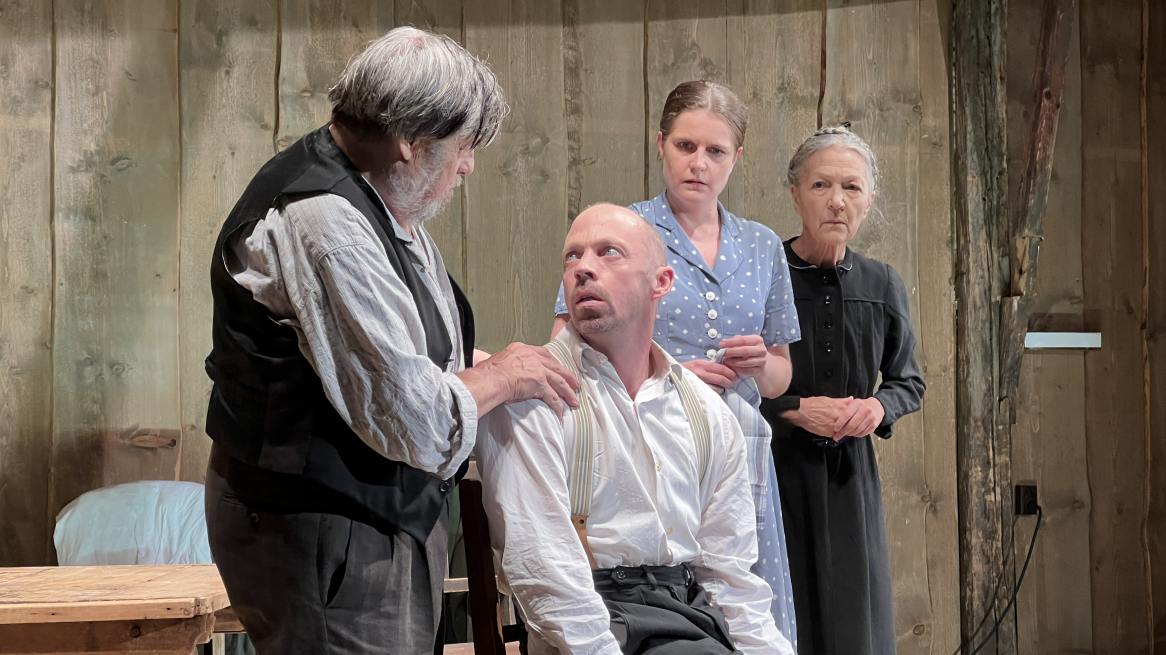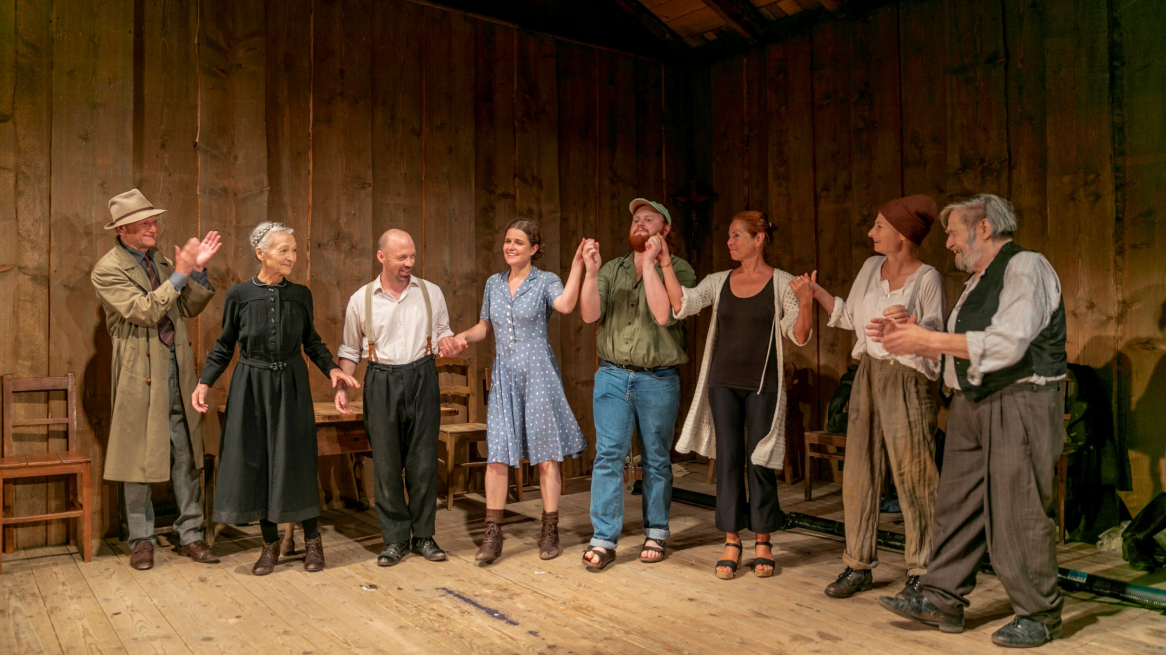In front of the Pizzeria Capello, I turn on the spot, searching. It should be somewhere around here. After a few steps it is, but in the backyard, an ancient wooden building with creaking stairs to the upper floor. As early as 1569, a gambling house was mentioned here in Telfs, behind the former Bergant bakery; the historic facade is now probably firmly in Italian hands. The Kranewitterstadl, on the other hand, has remained true to its role, here the floor still creaks just as it did back then, the dark roof beams also speak volumes, only the spotlights are new. They mercilessly heat the heavy thunderstorm air, the tension here must be released at any moment. The ensemble has also long since taken up their positions, unusually close, so completely without a curtain. An old table, a few chairs, nothing else.

